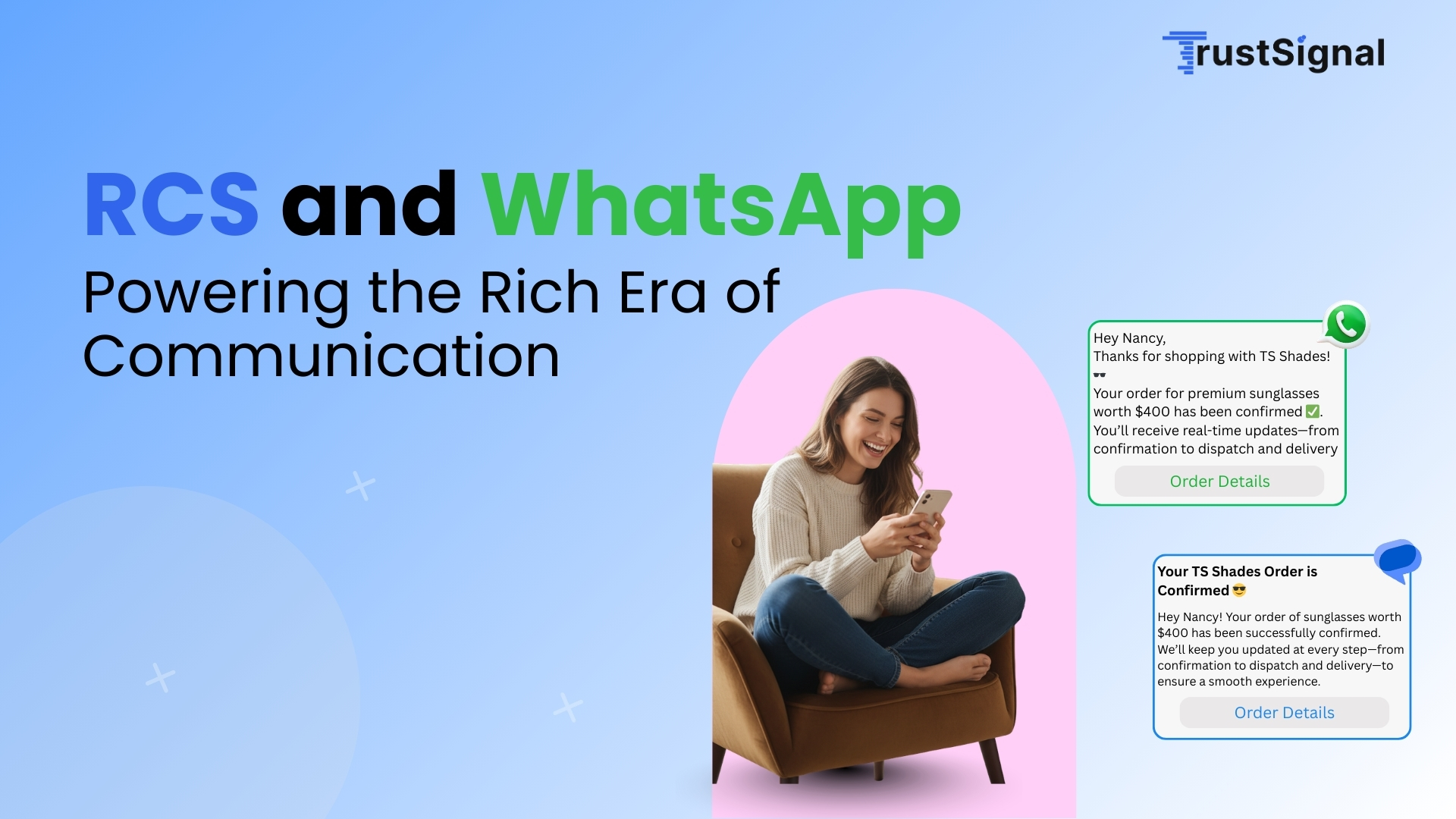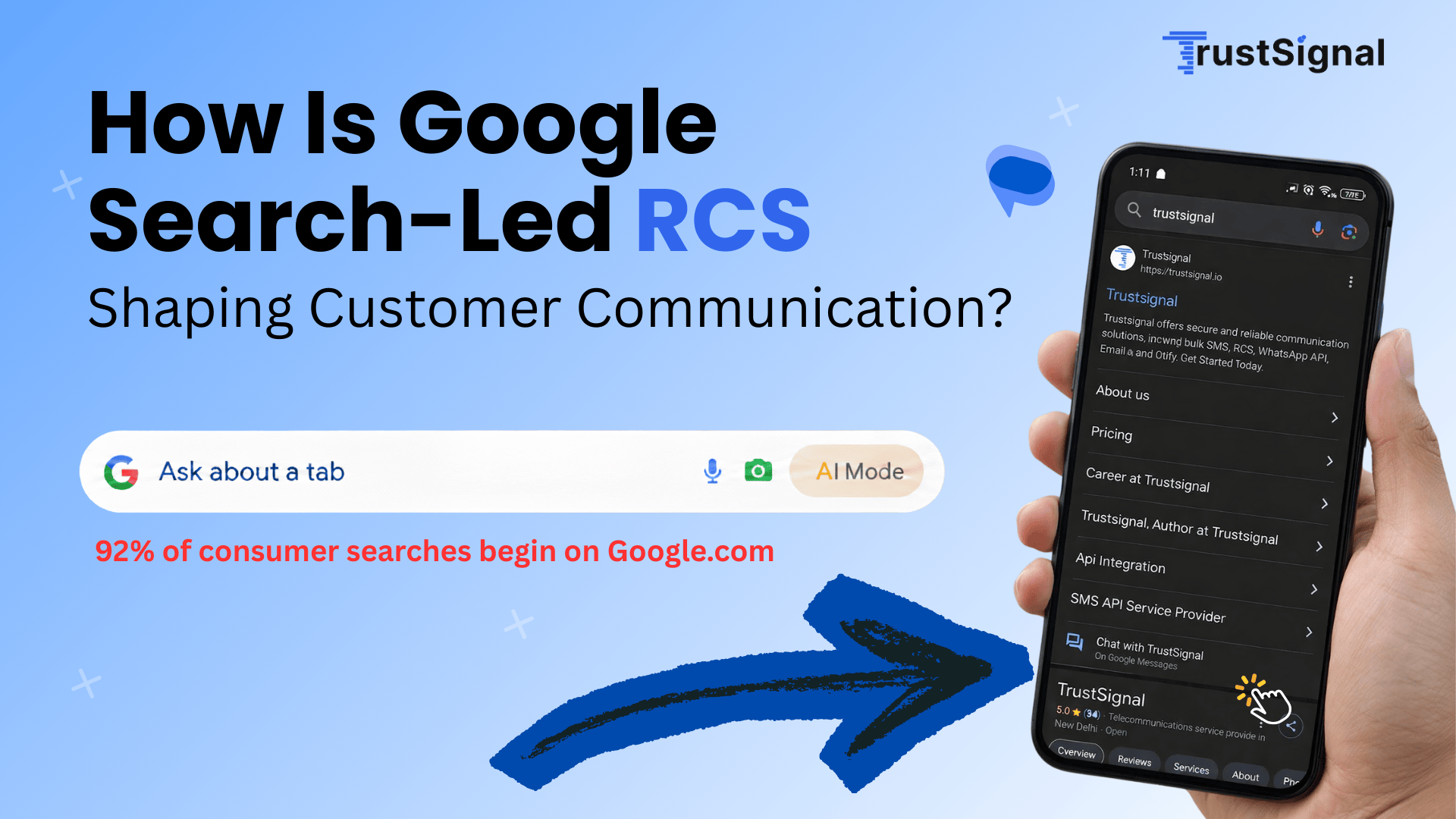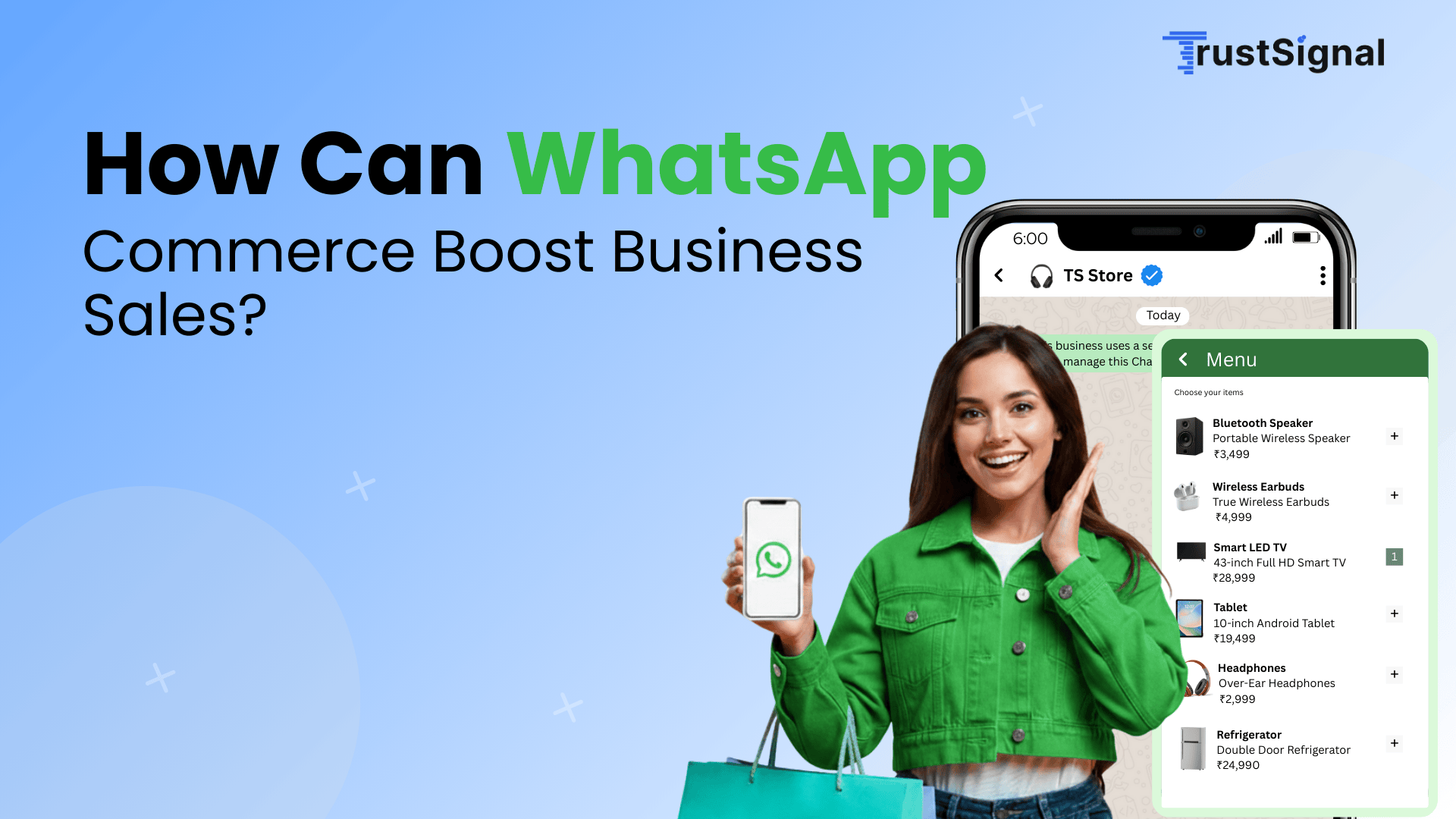A crucial component of successful e-commerce is customer retention. Research indicates that retaining existing customers is five times less expensive than acquiring new ones. The usage of SMS and WhatsApp can revolutionize brand retention and repeat business in a competitive market where maintaining client loyalty is challenging.
Brands can engage users in real-time, tailor interactions, and have instant conversations, thanks to these push channels. Businesses may create engaging strategies to engage and keep customers because WhatsApp messages are read in an average of five minutes, and SMS has a 98% open rate.
Let’s examine how e-commerce businesses can use WhatsApp and SMS to increase customer retention.
Why SMS & WhatsApp for Customer Retention?
1. Strong Engagement & Response Rates
Text messages and WhatsApp messages are read nearly instantly in contrast to emails, which have an average open rate of 20%. This guarantees that the customer receives crucial information, deals, and reminders without being overlooked. Businesses that use these platforms can get better interaction and faster responses because consumers check their phones a lot during the day.
2. Real-Time Communication
Businesses may keep clients interested throughout the purchasing process by promptly informing them of promotions, shipping updates, and purchase confirmations. Real-time communication helps customers feel less uncertain and fosters trust. Sending a delivery update with an estimated arrival time, for instance, reassures the client and raises satisfaction.
3. Personalization & Automation
Businesses may deliver customized messages based on consumer behavior and preferences thanks to AI-powered chatbots and automation tools, which improve the customer experience overall. Personalized interactions feel more relevant and engaging than typical marketing communications, increasing customers’ likelihood of buying from the brand.
SMS & WhatsApp Strategies for Retaining E-commerce Customers
1. Customized Order & Delivery Notifications
Real-time order updates are appreciated by customers. Timely WhatsApp and SMS messages build trust and lessen post-purchase anxiety. Proactive messaging helps avoid customer dissatisfaction because delayed communication can result in needless customer care inquiries.

Example: Hello [Name], your order [12345] is on its way! Follow it at [link].
WhatsApp: A rich media message that includes a tracking button for up-to-date information and an expected time of delivery.
Businesses can also use WhatsApp automation to remind customers about impending deliveries, request confirmations, or even offer rescheduling options.
2. Campaigns to Recover Abandoned Carts
A lot of consumers put things in their carts but never finish the transaction. They may return with automated reminders sent by WhatsApp and SMS. According to studies, up to 30% of lost purchases might be recovered by sending abandoned cart messages within the first hour.

Example:
SMS: Sorry! [Product] was left in your cart. Get 10% off if you finish your order right away! [Checkout Link]
WhatsApp: A rotating message with a checkout button and a temporary discount that highlights abandoned products.
Additionally, based on consumer behavior, advanced retargeting can tailor abandoned cart reminders by providing extra incentives for valuable clients or time-sensitive offers.
3. Customer service and quick assistance
Providing prompt customer service can greatly improve retention. Brands may incorporate chatbots and live support for real-time help using the WhatsApp Business API. Businesses can increase customer satisfaction by cutting down on wait times and offering automatic responses around the clock.

Example:
Hey [Name], do you need assistance placing your order? You can speak with our support staff at [link] or reply here.
A well-designed chatbot may provide a smooth experience by responding to frequently asked questions, handling refunds, offering product recommendations, and even managing reorders without the need for human contact.
4. Programs for Loyalty and Rewards
Customer engagement and repeat business are maintained through loyalty programs. Retention can be improved by using WhatsApp and SMS to send updates on reward points and special offers. Consumers are more likely to stick with a brand than to buy at rivals if they feel appreciated.

Example:
SMS: You’ve collected 500 points for loyalty! Use them to get discounts at [link].
WhatsApp: A personalized message that includes a redeem button, a progress indicator that indicates how close they are to the next tier, and a photograph of their reward status.
Adding a gamification component, like referral bonuses or point-based challenges, might further improve participation.
5. Cross-selling and Upselling
Businesses can use purchase history to make relevant product recommendations over WhatsApp and SMS. In addition to raising the average order value, upselling and cross-selling improve the shopping experience by giving customers helpful recommendations.

Example:
SMS: [Product] was purchased! Consumers adore [Related Product] as well. Save 10% at [link].
WhatsApp: A “Buy Now” button with a rich graphic and video message highlighting the complementary goods.
Brands can use time-limited promotions and urgency-driven marketing, such as “Only a few left in stock!” to increase conversions even more.
6. Re-engagement initiatives (Win-Back Plan)
Re-engagement efforts that provide special discounts to clients who haven’t purchased in a long time can entice them to come back. The most excellent messages are customized and include a reminder about a previous purchase or a special deal.

Example:
Hey [Name], you are missed! This is a coupon for 15% off, just for you! Get it now at [link].
Finding the best offers for various consumer categories might be aided by A/B testing various communications.
7. Gathering Reviews and Feedback from Customers
Feedback from customers is crucial for enhancing goods and services. Customers can easily give evaluations via SMS and WhatsApp, especially if they are provided at the appropriate moment (for example, after an order is delivered).

Example:
SMS: What was your experience buying? Give us a rating here: [Link].”
WhatsApp: A message with an interactive button to solicit evaluations and feedback.
A good brand reputation can be maintained by encouraging pleased customers to write public evaluations and referring dissatisfied customers to support channels.
Best Practices for Using SMS & WhatsApp in Retention
- Segment Your Audience
- Send relevant messages based on customer behavior (VIP customers, new buyers, repeat customers).
- When to Send Messages
- Avoid sending messages too frequently; optimize for engagement without being intrusive.
- Ensure Compliance
- Get opt-in consent and follow GDPR, TCPA, and DLT regulations.
- Use Automation & AI
- Implement AI chatbots for personalized messaging at scale.
Conclusion
E-commerce companies may increase engagement, nurture repeat business, and maintain a relationship with their clients by using WhatsApp and SMS for customer retention. Businesses may improve customer satisfaction and create enduring relationships by utilizing automation, frequent updates, and personalized communications.
Do you want to market your brand via WhatsApp and SMS? Contact us right now to begin!






